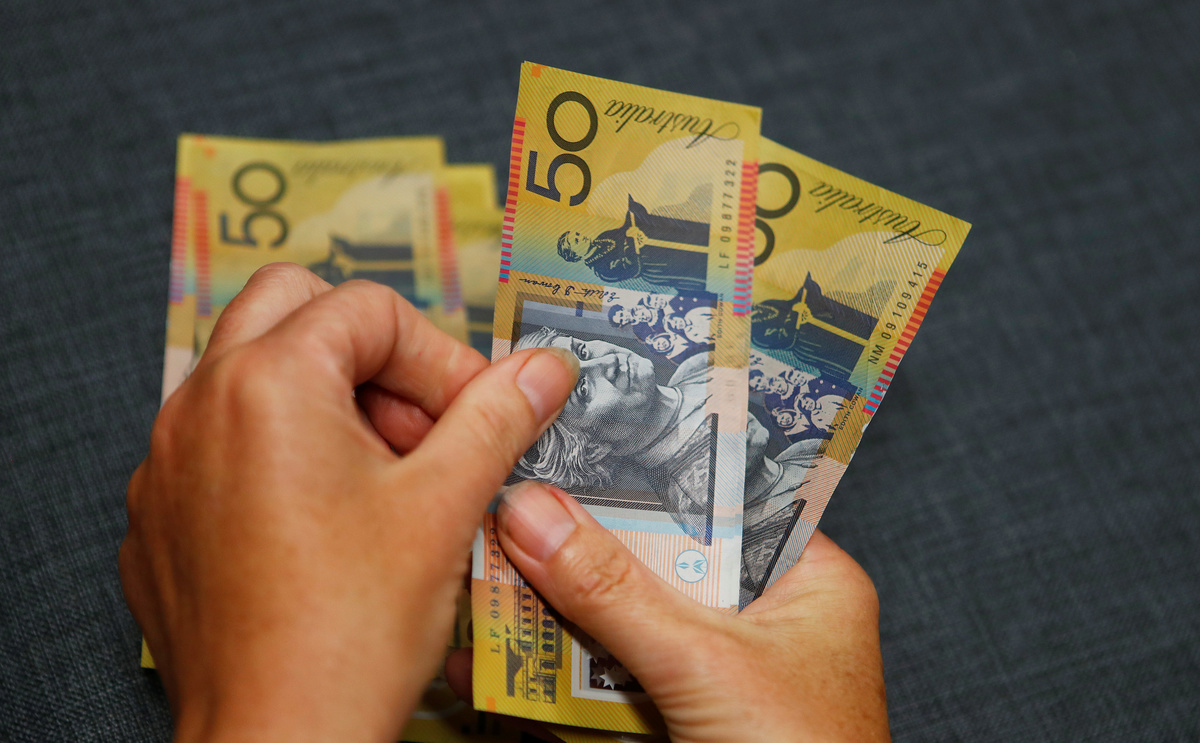
SYDNEY/WELLINGTON (Reuters) - The Australian dollar edged higher on Thursday after the country's trade surplus swelled to a near two-year peak in September helped by a bumper run in resource exports, while the New Zealand dollar was also buoyant.
Data from the Australian Bureau of Statistics (ABS) showed the country's trade surplus climbed to A$3.02 billion when analysts had looked for A$1.7 billion.
That took the third-quarter surplus to A$6.4 billion, almost three times the size of the second quarter's A$2.2 billion.
Separate data showed export prices for the third-quarter ended September sprang 3.7 percent while import values climbed 1.9 percent.
The strong numbers sent the Aussie <AUD=D4> to the day's high of $0.7118, recovering all of the losses from the previous session.
"Net export volumes likely contributed around 0.2 percentage points to growth," in the third quarter, said David de Garis, Melbourne-based economist at National Australia Bank.
Gross domestic product data for the third quarter is due early December.
"It's more income into the economy, buttressing near term growth and giving the central bank more confidence on the flow through of the resources expansion through to the economy," de Garis added.
Australia's A$1.8 trillion economy has expanded for 27 years without a recession while the labour market is booming and the drag from the end of a once-in-a-generation mining investment boom is drawing to a close.
Still, there are no signs of inflation in the economy. And that has forced the Reserve Bank of Australia (RBA) to hold rates at a record low 1.50 percent for more than two years now.
Interest rate futures suggest this period of stable policy will likely extend into 2020. <0#YIB:>
Across the Tasman Sea, the New Zealand dollar <NZD=D4> jumped 0.6 percent to $0.6553 from Tuesday's $0.6515. The kiwi slipped 1.5 percent last month but has started November on a firm footing.
The gains in the kiwi came amid broader U.S. dollar selling after a report that British Prime Minister Theresa May has struck a deal with the European Union on financial services. This would give these companies continued access to European markets after Brexit, the report said.
The news sent the pound <GBP=> 0.6 percent higher while the euro <EUR=> gained 0.2 percent.
The dollar's index <.DXY> eased 0.3 percent from a 16-month high following strong economic data.
New Zealand government bonds <0#NZTSY=> eased, sending yields about 2-3 basis points higher across the curve.
Australian government bond futures slipped, with the three-year bond contract <YTTc1> and the 10-year contract <YTCc1> down 3 ticks each at 97.920 and 97.335 respectively.
(Reporting by Swati Pandey in SYDNEY and Charlotte Greenfield in WELLINGTON; Editing by Christopher Cushing)







